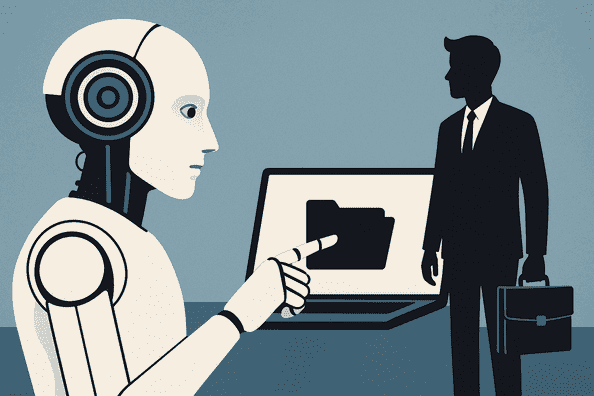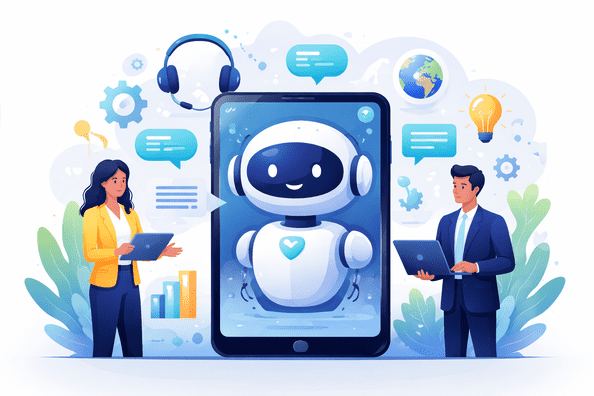As AI capabilities advance, entry-level roles that involve repetitive, rule-based tasks—such as market research, sales support, data entry, and basic coding—are most vulnerable. To stay competitive, new graduates and early-career professionals should cultivate AI-complementary skills, embrace continuous learning, and pursue hybrid human-AI positions.
The Evolving Entry-Level Landscape
For decades, entry-level positions provided a structured environment for newcomers to learn industry essentials through hands-on tasks. Writing basic code, compiling reports, or answering customer inquiries offered a clear progression path. Today, AI transforms these foundational roles by automating routine activities, compelling employers to rethink how they onboard and develop junior talent.
AI-driven platforms can now generate market insights, draft emails, and even write code—tasks that previously served as training wheels for new hires. As organizations invest heavily in AI, entry-level “grunt work” is increasingly offloaded to machines, leaving early-career professionals to focus on higher-value contributions.
Roles Under the Automation Spotlight
Market Research Analysts
AI analytics tools ingest and interpret massive datasets, identify trends, and produce reports within minutes. Generative platforms now handle the bulk of routine data synthesis, reducing opportunities for human analysts to perform manual compilations.
Sales Support and Lead Qualification
Modern AI systems draft outreach messages, score leads based on CRM data, and conduct preliminary negotiations. Rather than spending mornings on high-volume calls, junior sales staff are guided to specialize in relationship building and strategic deal-making.
Administrative and Data Entry Assistants
Robotic Process Automation (RPA) solutions and conversational agents manage calendars, populate databases, and process forms around the clock with near-perfect accuracy. Traditional scheduling and data-entry duties are rapidly shifting to automated workflows.
Junior Software Developers and QA Testers
AI coding assistants such as GitHub Copilot and CodeWhisperer generate boilerplate code, propose bug fixes, and automate test cases. While these tools boost productivity, they also shrink the scope for entry-level developers to gain hands-on coding experience through repetitive tasks.
Why Certain Roles Face Higher Risk
AI excels at identifying patterns and executing well-defined procedures, making routine, rules-based responsibilities prime candidates for automation. Entry-level positions often revolve around these exact tasks—data gathering, basic analysis, and templated communication—where AI systems can deliver faster, more consistent outcomes at lower cost. As corporate AI investments grow, roles that lack significant human judgment or creative nuance are most susceptible.
Emerging Human-Centric Opportunities
Despite automation trends, AI also generates new career pathways. Early-career professionals who learn to collaborate effectively with AI can thrive in roles that emphasize:
Strategic Insight and Creative Problem-Solving
Rather than compiling reports, individuals can focus on framing business challenges, generating innovative solutions, and interpreting AI-driven outputs for decision-makers.
Prompt Engineering and AI Tool Mastery
Crafting precise prompts to guide generative models is in high demand. Professionals adept at extracting optimal AI responses become vital in marketing, product development, and research teams.
Emotional Intelligence and Relationship Management
Human skills—empathy, negotiation, and storytelling—remain irreplaceable. Entry-level professionals who cultivate strong interpersonal abilities can excel in client-facing, leadership, and team-collaboration roles.
AI Oversight and Ethical Governance
New positions such as AI ethics officers and quality analysts oversee system biases, ensure compliance, and validate AI outputs. These hybrid roles blend domain expertise with technical understanding.
Real-World Illustrations
In law firms, generative AI now conducts initial contract reviews, freeing junior associates to handle complex negotiations and client interactions. Financial institutions employ AI for routine earnings summaries, with entry-level analysts focusing on anomaly detection and strategic interpretation. Tech companies like Microsoft illustrate how Copilot writes substantial portions of code, prompting a shift toward AI system maintenance and architecture roles for new hires.
Guiding Your Career Path
For Recent Graduates
- Expand Your Skill Set: Combine deep expertise (e.g., data analysis) with broad AI literacy.
- Seek AI-Integrated Internships: Look for programs where you work alongside AI tools on impactful projects.
- Showcase Human Strengths: Highlight creativity, ethical reasoning, and communication in applications.
For Hiring Managers
- Redesign Onboarding: Integrate AI-based tasks into rotations so newcomers learn both machine and human workflows.
- Foster a Learning Culture: Offer AI training, mentorship, and micro-credentials to help entry-level staff evolve alongside technology.
- Create Hybrid Roles: Develop positions where AI handles repetitive duties and humans manage exceptions and relationships.
Looking Ahead
The traditional entry-level landscape is being reshaped by intelligent machines. Roles centered on structured, repetitive work face the greatest risk of automation. However, by cultivating AI-adjacent skills, embracing strategic and creative responsibilities, and pursuing hybrid human-AI opportunities, early-career professionals can redefine what it means to launch a career in the AI era.



